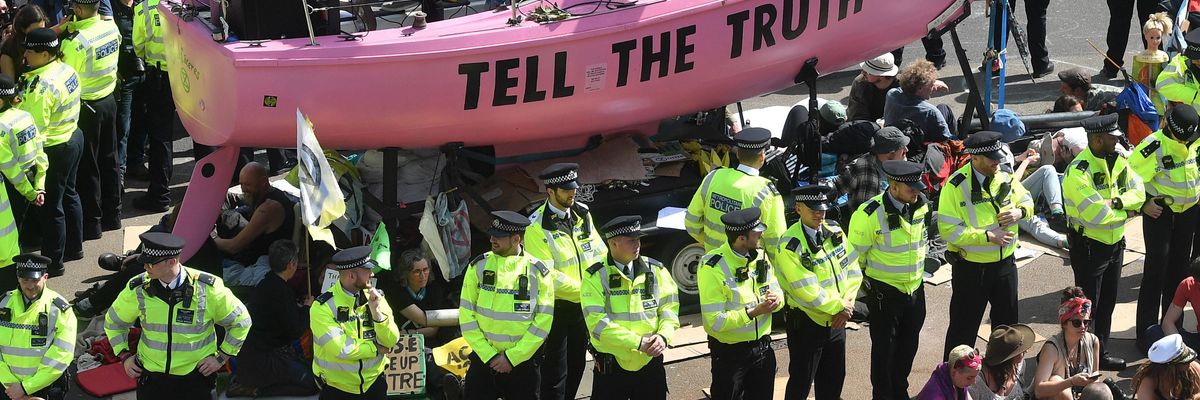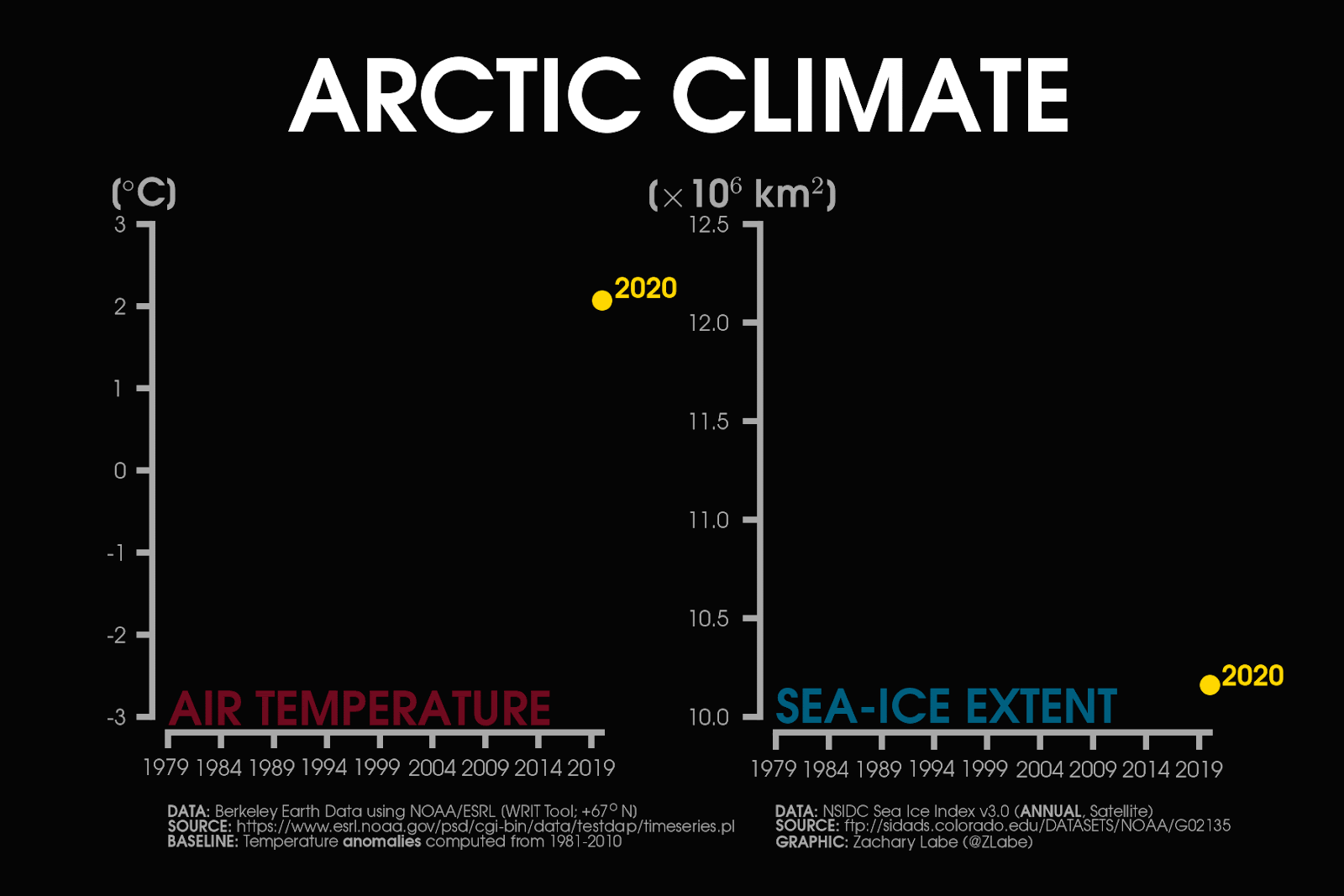The summer of 2021 has seen a delayed Olympics where humanity has guardedly emerged from a global pandemic which has claimed over four million lives. Records have been broken in water and on land, but sadly Olympic venues are not the only places where records have been obliterated.
The rebellion is against our extinction, and it aims to force governments to immediately decarbonize our global economy, to tell the truth about our dire situation and to allow citizens' assemblies to help guide future decision making as our leaders are clearly not up to the job.
Seattle saw the mercury climb to 108degF (42degC) in late June but Canada ran out victoriously in the heat strokes with British Columbia breaking the country's record three days in a row before reaching a staggering 121degF (49.6degC). The contiguous United States recorded its hottest June on record with the average temperature being 4.2degF above normal. Almost half the United States was in drought by the end of June. On the Eurasian continent, Moscow broke its record for the hottest ever June when thermometers measured 94.6degF (34.6degC). Records also tumbled in Helsinki, Belarus, Estonia and Romania.
As the records in the air tumble, they are having a devastating impact on our seas. The sea-ice coverage in the Arctic's Laptev Sea reached a record low for June. As the sea ice retreats, the darker waters absorb more heat instead of reflecting the Sun's energy back into space. This is having a potentially catastrophic impact on the huge methane deposits which have sat trapped under the permafrost of the East Siberian Arctic Ocean (ESAO). While methane is slowly emitted constantly by microbes in the permafrost, there are gigantic submarine reservoirs of the gas contained within icy walls. There is enough methane stored under the permafrost to add six times the amount of CO2 that humans have emitted since the Industrial Revolution. Scientists thought these methane deposits would stay safely contained for decades but methane bubbles are now reaching the ocean's surface. If temperatures continue to rise, then more and more methane will seep out and significantly increase the global temperature and lead to abrupt climate change.

(Source: https:://sites.uci.edu/zlabe/arctic-temperatures/)
The warmer atmosphere is having equally cataclysmic effects in Greenland where enough ice melted in a single day in July 2021 to cover Florida in 2 in (5 cm) of water. The ice melt further enhances warming by absorbing more heat than the reflective ice and scientists are warning that it is reaching a tipping point of no return. This melting could raise global sea levels by 23 ft (7 m) and it is having a similarly earth-shattering impact in the ocean itself.
Climate scientists have been monitoring the Atlantic meridional overturning circulation (AMOC) for decades and it is at its slowest point for 1,600 years. This is the ocean current that brings warm waters from the equator up and across the Atlantic to Europe. It is the reason Britain and Ireland are not frozen solid in winters. In research published in August 2021, scientists warned that it may be approaching a tipping point where it shuts down completely. As the AMOC weakens, Europe is expected to see increased storms and colder winters, and rainfall in West Africa, India and South America will be severely disrupted. Sea levels in North America will rise and the effects will be felt as far away as the Amazon rainforest and Antarctic ice sheets.
Our Olympic summer has played out against a backdrop of raging wildfires in America, Greece, Turkey, Italy and further north in Canada and Siberia. As the atmosphere heats up, the fire season will become longer, and the soil and trees will dry out. This will leave them vulnerable to a spark that may come from lightning, which is expected to increase by 12% for each 1.8degF (1degC) of global warming. These wildfires are responsible for roughly 5 to 10% of global CO2 emissions and they are expected to burn 60% more land by mid-century. An even more worrying impact of wildfires is being felt under the ground high up in the Arctic Circle. Here, so-called zombie fires are burning through Canada, Alaska, Greenland and Russia. They are named because they are capable of coming back to life after being extinguished. They achieve the seemingly impossible by burning through underground methane deposits in the winter and when the snow melts and the soil dries out, they ignite once again. These were once considered a rare phenomenon, but they are now causing up to 38% of fires in the far north.
Outside of the Olympics, good news has been rare. In mid-July, scientists informed the world that the Amazon rainforest was now emitting more CO2 that it could absorb. The once giant carbon sink has been transformed by ranchers burning the lungs of the planet to graze cattle and to grow soy for animal feed to meet the worldwide demand for beef. With fewer trees, there will be less rain and the Amazon rainforest will have to change its name to the Amazon savannah.
Some of the Earth's tipping points are already being reached and we have only warmed our planet by 1.8degF (1degC). We are expected to reach 2degF (1.5degC) warming between 2030 and 2032 and then the next threshold of 3.6degF (2degC) a decade later. This will undoubtedly lead to mass suffering on a scale never before experienced. The UN predicts 1.8 billion will suffer from water scarcity by 2025, and by the end of the decade, almost half our population could be water stressed. By 2060, a staggering six billion could struggle to find water. That's if there are still six billion people alive in 2060. Without water, there will be no food. Without food, billions will be forced to fight each other for resources or flee. This will lead to armed conflict, mass starvation and migration on a scale hardly imaginable. It's estimated that 1.2 billion could be on the move by 2050. To put this into context, 2.7 million humans migrated to Europe in 2019.
Everything written here has been understood by our leaders for decades. They are human and have families, just like us, yet they have done little to stop this unfolding calamity. In fact, they are still investing in the very industry that is causing our planet to burn. Since the COVID-19 pandemic began sweeping across the globe, the richest seven nations have spent $190 billion on fossil fuel projects. The United States, unsurprisingly, gave 72% of its energy fund to dirty industries, and this flies in the face of the advice of the International Energy Agency (IEA) who state that all fossil fuel projects must be halted if we are to meet net-zero emissions by 2050.
Faced with such a horrific future, it is easy for many to despair, and this is understandable. Despondency will solve nothing though, and while many hope for change, the simple act of hoping never ever bears fruit. Hope can only be found in action. Fortunately, there is a non-violent rebellion underway, and everyone and anyone is invited.
The rebellion is against our extinction, and it aims to force governments to immediately decarbonize our global economy, to tell the truth about our dire situation and to allow citizens' assemblies to help guide future decision making as our leaders are clearly not up to the job. Extinction Rebellion (XR) were launched in the UK in 2018 and quickly spread around the world. They endorse civil disobedience and arrest as a tactic to force governments to act in the face of planetary collapse. After XR closed parts of central London for two weeks in 2019, the government declared a climate emergency and announced a legally binding target for net-zero emissions by 2050. Of course, this is nowhere near enough and XR's struggle against extinction continues. Their tactics, in just a few years, have succeeded where decades of traditional environmental campaigning has failed. They have been off the streets during the pandemic, but they are singing and dancing their way to the heart of London on August 23rd with a demand for the government to "Stop all new fossil fuel investment immediately."
This is a demand that will be supported by the vast majority of the global population but perhaps not by our compromised leaders. It is up to us the people, to make them do their jobs. We are the first generation to understand the risks and we are the last generation that can do anything to stop the incredible suffering and collapse that are coming. While it is easy to lose hope, it is just as easy to re-find it through action. Together, we can choose our future. It isn't over yet and as Nelson Mandela once said, "It always seems impossible until it's done."


